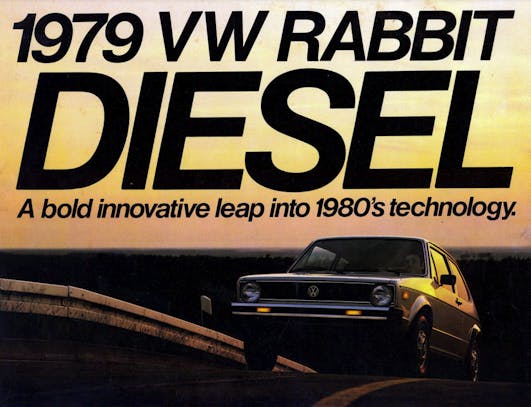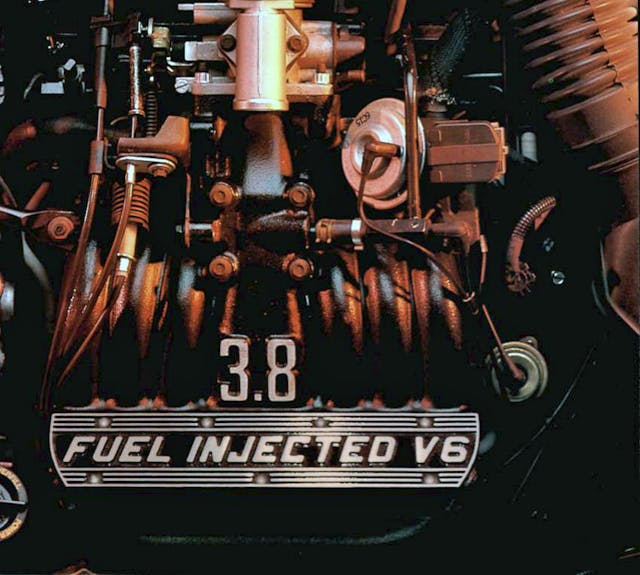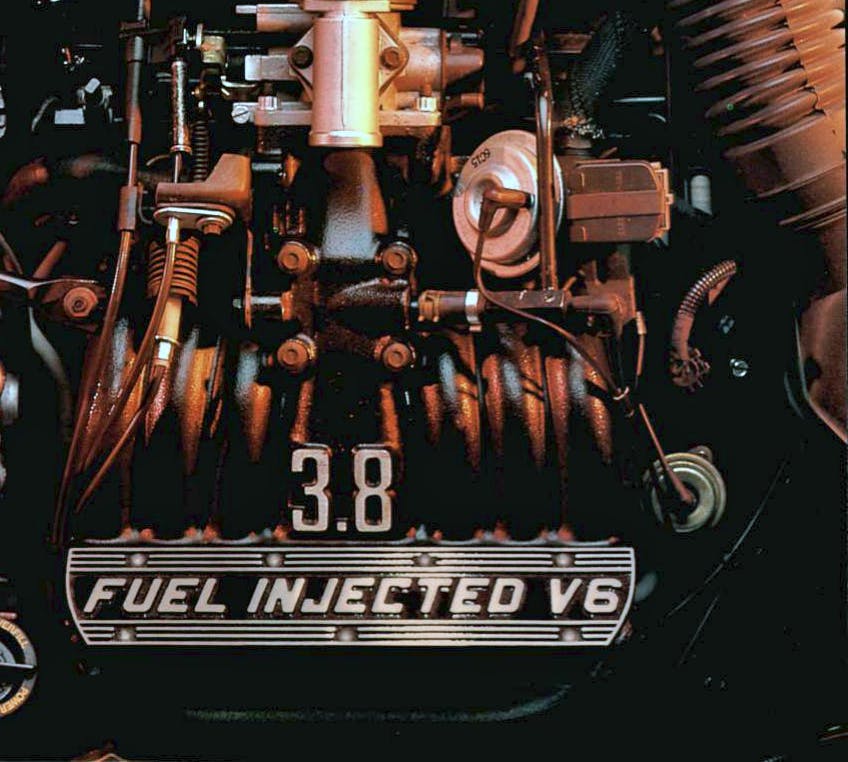Media | Articles
What’s the worst engine you’ve experienced?
We’ve seen the good and the bad in our lives, haven’t we? And when it comes to our passion for the automobile, does anything get us more upset than a poorly performing engine?
Take the photo above, as I am (sadly) quite the fan of Ford’s fairly disappointing Essex V-6. I am painfully aware of the issues with its head-gasket-munching demeanor, but I remain firm in my convoluted logic to find appeal in this mill. Which is irrelevant when the aluminum heads and flawed gasket design take over … but what was the motor that I truly hated?

I was but a young child in the back seat of this poor little VW product. Thanks to its diesel engine, the memories of my family’s temporary ownership of the VW Rabbit linger to this day. (A family friend wanted us to run it periodically while he was tending to family matters in India over the holidays.) I was freezing cold in a damp parking garage, realizing that perhaps a 3-to-4-year-old VW diesel wasn’t as cool as I was expecting it would be. The engine refused to fire up with my Dad behind the wheel for several minutes—an eternity, for a kid my age.
The owner had told us his Rabbit was finicky, but the frustration in my father’s eyes was hard to forget. He had some choice words for the Rabbit, words that kids aren’t supposed to hear. Oh, to be a fly on the wall when my father made a long-distance call to India about that particular VW product.
The diesel Rabbit sputtered and stalled when it was cold, behavior which was kinda terrifying with all the bigger vehicles here on the mean streets of Houston, Texas. Things fared better when it warmed up, but the engine’s 50-ish horsepower meant merging on any of the interstates was an act best reserved for the most faithful of the flock.
Marketplace
Buy and sell classics with confidence
This was the first time I remember my clothes smelling like the fumes emanating from a tailpipe, for better or worse. To this day I wonder how long the glow plugs are supposed to last on these engines, and if this particular Rabbit needed a new set.
No matter, this question remains:
What’s the worst engine you’ve experienced?
Check out the Hagerty Media homepage so you don’t miss a single story, or better yet, bookmark it.





Worst-running was a 1972 Super Beetle’s 1600; even the local highly-skilled German (literally from Germany, named Gottschalk) VW mechanic could not get it to run better than mediocre.
Worst overall? A 305 in a 1985 Monte Carlo SS. At about 40,000 miles, the crankshaft sheared-off where it came out of the front of the engine – while just cruising in O/D at about 60 MPH. The (independent) shop that rebuilt it said that the crank appeared to have been bent, quite possibly before it sheared. That beautiful, comfortable, great-handling car was unfortunately a lemon otherwise, though, so I should not have been surprised at the crank failure.
The 400 ci engines of the 70s Mopars! They ran the exhaust manifolds right up against the valve covers. The gaskets became charcoal in a couple hundred miles and even their gaskets designed to address the problem cracked and leaked in very short order. The baked gaskets leaked oil onto those same exhaust manifolds and that “… fine Corinthian leather” smelled like Ricardo Montalban was smoking cheap cigars in the back seat.
For me personally it was hands down the Ford Thriftpower Inline-6 in our 1978 Ford Fairmont. It was a 200 cu in naturally aspirated inline six with a 1-barrel carburetor that made 85 hp at 3600 rpm. The car shook at highway speed and felt like it would shake apart into pieces when you turned the air conditioning on! Worst engine and car ever!
Another vote for the Chevy Vega engine.
(Buick) 3.8 V6 in a ’79 Olds Cutlass wagon
I experienced oiling problems accompanied by valve train noise and the engine light. I’d stop and let the engine cool down, and then be on my way. The crankshaft finally broke in half. (Because it broke on the diagonal, the engine continued to run, though poorly.)
A co-worker had similar problems with that engine in a Grand Prix. His engine was replaced under warranty.
Another co-worker lost the engine in his Buick version (I’ve forgotten the name.) of the Chevy Monza.
All three were due to poor oiling.
I will never buy a Kia (or Hyundai) again, the 4 cylinder engine in my daughter’s Kia Forte developed a tapping noise with less than 100,000 miles on it and the dealer told me it would be cheaper to replace the engine than to have the noise diagnosed and fixed. They charged me over $3,000 to replace it and neither the dealer nor the manufacturer would admit the engine was bad from the start. Just a warning to anyone considering buying a Kia or Hyundai or Genesis, the manufacturer does not stand behind their products.
Funny – up here in Canada the dealers (hyundai, anyway) are backed up 6 weeks or more on warranty engine replacements – at company expense – even after warranty has expired. They definitely had some engineering problems – but here in Canada, at least, they’ve come to the plate. Locally our Hyundai dealer is pretty good but I have no faith in the local Kia store. We have a 2014 Kia Sorento 3.3 and my daughter has a 2013? Elantra GT 1.8
Chevy 216? straight six in a 1954 truck. The crankshaft broke in half. 1975 Fiat X1/9 1.3 liter. I broke a timing belt and being a interference engine that took out the valves. I tried to pull the head off and had the weight of the car hanging from the rafters to the head and even bounced it. The head would not come off. I loved the car so I took it to Fiat dealer and had a complete engine rebuild done. That timing belts lasted 3000 miles and I was done with Fiats.
Going down an Interstate highway doing about 85 mph (in a 70 mph speed zone) in a mid-1980s Hyundai Sonata with 150,000 miles on it and having the timing chain go. (It hadn’t been replaced at any scheduled maintenance interval.) We were 200+ miles from home in an area with a very small population. The engine, of course, was a total loss (bent rods and other sundry bent/broken internals) and a good used replacement was more than the entire vehicle was worth.
The funny part is we were going to trade the car in the next weekend for a Hyundai Santa Fe! Fortunately we weren’t all that far from a Hyundai dealership so had the car towed there and purchased a new Santa Fe. (We got enough out of the trade-in to cover towing and taxes.)
Kia Gamma Nu 2.0 2014+
At approximately 85,000 miles oil consumption noticed. Kia considered it normal. By 100k 1 qt every 2000 miles consumed. Not excessive according to Kia. Drove to 115,000 catalytic converter was failing due to oil. Traded in Jan 22. Hear they are replacing engines now but never again.
I havent purchased any truly bad engines but the worst for me was likely my 2008 hyundai accent. I dont remember what 4 banger was in it but the timing belts were 800 to service and it ate coil packs for breakfast. Every 6 months another annoying misfire.
I can name three:
The four banger in my 1971 Vega Kammback.
The four banger in my 1976 Honda Accord.
The Northstar V8 in my 2001 Cadillac STS.
Purchased a new 1985 Renault Encore, with the 1.7 engine. Timing belt broke just before 40k miles, interference engine, so pulled the head, off to the machine shop to make it right. Got it back together again about two weeks later, it ran for about 2-3 days then the belt broke again, due to the positioning roller for the timing belt seized-which caused the belt to break, again. Pulled the head, back to the machine shop ….back together again about 2 weeks later, running. Then the starter went out. Replaced the starter and sold the 5 year old car for about 600$. 1994 car of the year…..
It was a 12 cyl. opposed piston Fairbanks Morris Submarine Diesel engine that I worked on then. As far as the new cars go they seem to last a lot longer. one of my trucks I checked the valve clearances at 440000 Kl. and # 3 cyl. never changed the clearances, the other exh. I tightened .002″ and .003″. But had to restore the body yes.
I have had the experience of owning a 1994 Cadillac Eldorado & a 1998 Cadillac Sedan Deville with Northstar V8s, that went 90,000+ miles, then started over heating. I attempted to have the 1994 repaired, $3,500 with no warranty. It was a waste of money, sold the car at a loss. When the same problem occurred on the 1998, traded it in for 2000 Buick Park Avenue Ultra which became one of the best cars I’ve ever owned. All the good press about Northstar V8s, did not take into account of the incompatibility of an aluminum engine block with cast iron heads.
The HT-series had iron heads on an aluminum block. The Northstar was all aluminum.
Anyone remember the garbage Cadillac 4-6-8?